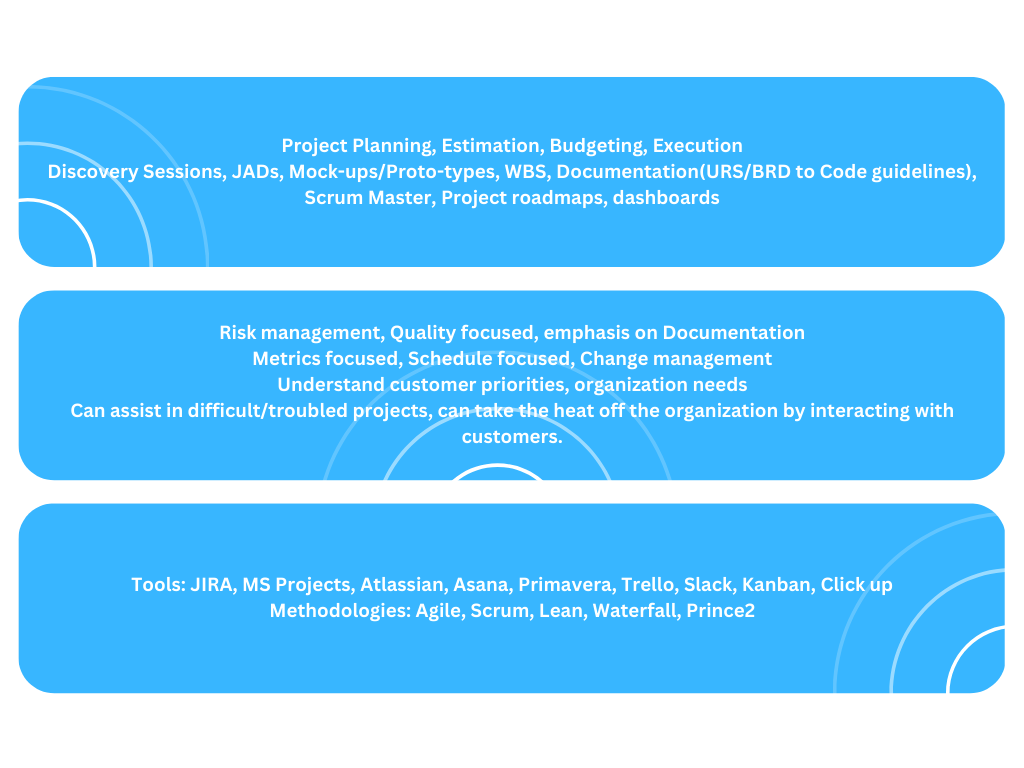Flexible Enough to Meet Project Needs
The key to most projects being successful are how effectively was the project managed.
Our experience in this area has helped customers avoid difficult situations, bring back projects from Red, be it development, maintenance, re-engineering, product development, implementation of 3rd party COTS products across technologies.
We have experienced the following typical situations:
- Managing strategic, mission-critical initiatives
- Recovering troubled projects
- Interim leadership
- Filling skill set gaps
- Supplementing resources when demand exceeds capacity

